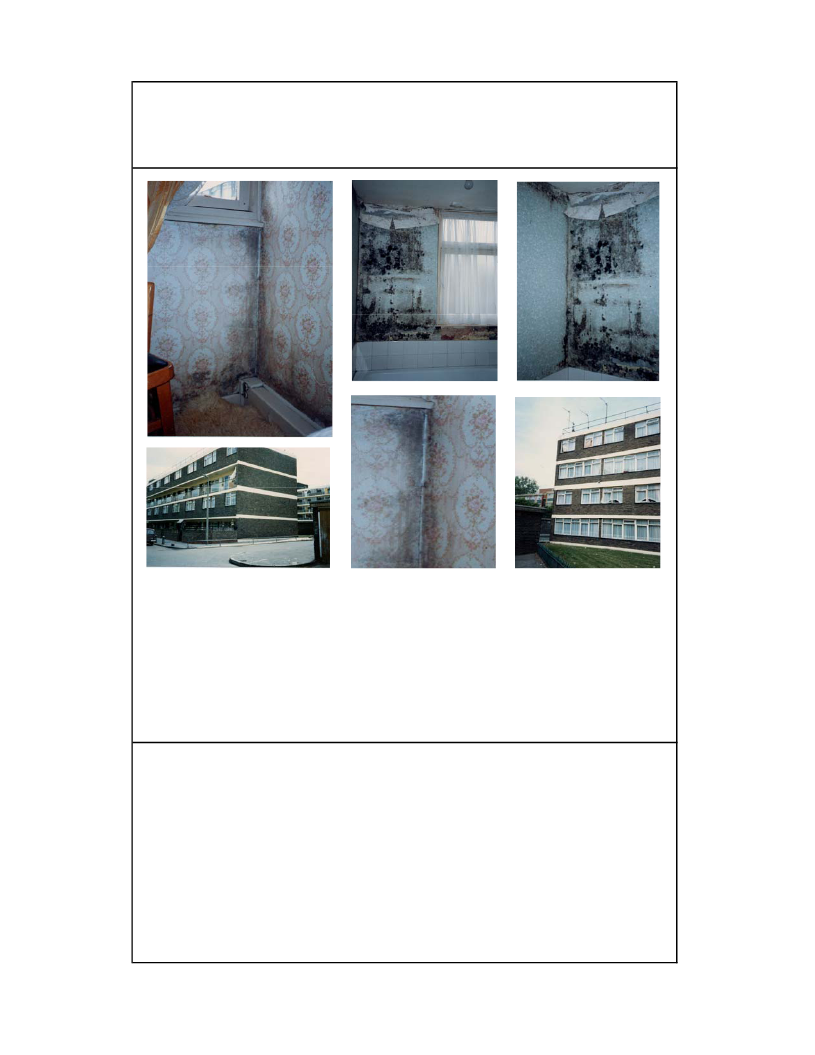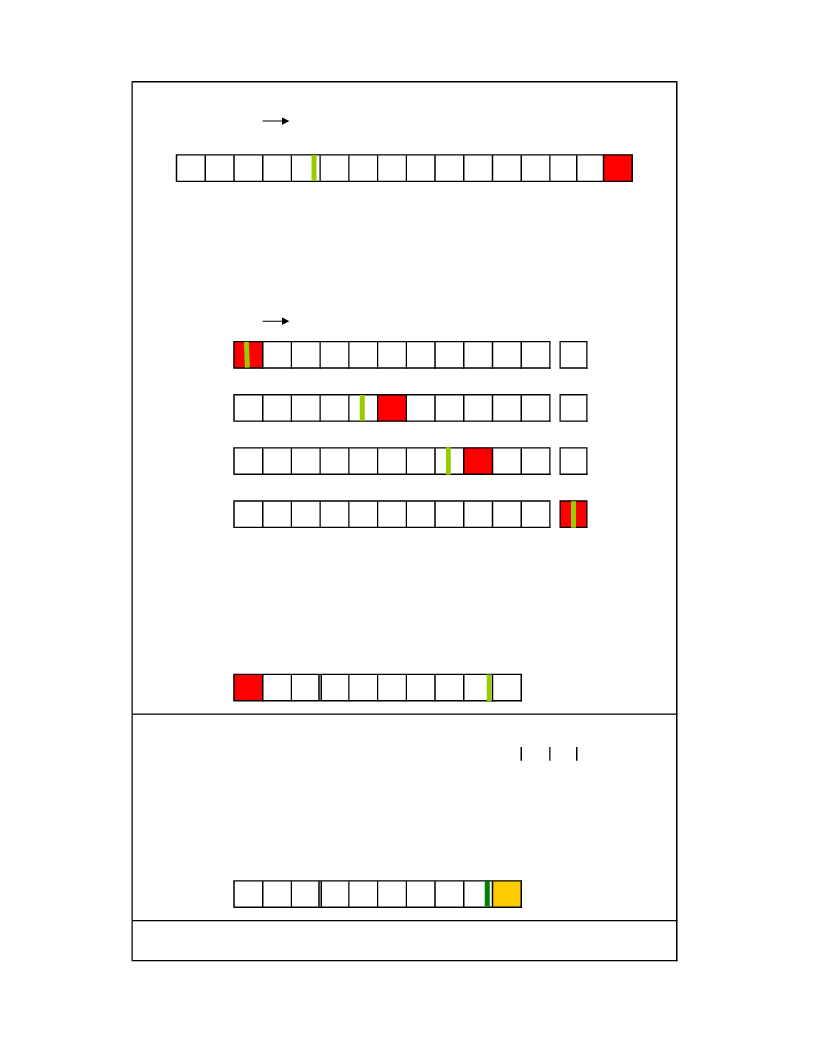
HHSRS VERSION 2
SPETEMBER 2004
DAMP AND MOULD GROWTH
HHSRS VERSION 2
Yes
Yes
No
No
Vulnerable age
Related hazards
A) Front end bedroom
Persons aged under 15 years
Excessive cold
B) Bathroom
Multiple locations
Secondary hazards
DESCRIPTION OF HAZARDS
Dwelling: 1960s, 2⁄3rd floor 3 bedroom end maisonette
Background: The 4 storey block is of brick crosswall and exposed concrete floor slab construction. Space heating
to each maisonette is by means of a gas-fired ducted warm air system.
Front bedroom: The concrete floor to the top floor front bedroom and bathroom projects over the access balcony by
approximately 1 metre. There is damp affected plaster and mould growth to the front main walls and to the exterior
flank wall to the front bedroom.
Bathroom: The front wall of the bathroom and adjacent ceiling and internal walls are affected by severe and
extensive mould growth, caused mainly by condensation resulting from cold bridging.
A)
B)
LIST OF RELEVANT MATTERS
LIKELIHOOD & OUTCOMES
A
B
-
-
3
3
3
-
3
-
-
-
-
-
A
B
1
2
3
4
a
b
c
d
e
f
g
h
Rising damp
-
Penetrating damp
-
Condensation
3
Mould growth
3
Energy efficiency
3
Background ventilation
-
Extract ventilation
Clothes drying facilities
-
Damp proofing
-
Disrepair
-
Exposed water tanks etc
-
Water using appliances
-
-
-
I
Plumbing⁄waste pipes
j
Rain water goods
k
Roof⁄sub-floor spaces
l
Small room sizes
# Secondary hazards
-
None
-
-
-
-
-
A
-
B
-
-
Key
3
Seriously defective
2
Defective
1
Not satisfactory
-
Satisfactory⁄NA

8
Improved
Score:
Av:11
The problems in the dwelling are mainly due to the cold bridges created by the exposed
ends and ceiling of the reinforced concrete slab forming the top floor to the block. Installing
insulated cladding and a better heating system would reduce the risk to better than average
levels.
Justification
NEW RATING
Av: Nos
IMPROVE
Likelihood to
1 in
560
Outcomes to
0
1.0 10.0 89.0
%
Example
RATING
RATING SCORES AFTER IMPROVEMENT
Average:11
Score:
9413
The risk of a severe or serious outcome occurring is increased by the severity of the mould
growth in the bathroom and in the smallest of the three bedrooms, this being most likely to
be occupied by a child. The output of spores will be significantly above the level given by
the damp and occasional slight mould found in more average situations. The psychological
effect may be a further contributing factor causing harm.
0.15
76.3
38 >
Av: 89.0
76.3
38 >
0.15
Average likelihood, outcomes and HHSRS score for hazards from damp & mould by persons
aged under 15 years in 1946-79 non-HMO,1997-99.
0.15
%
0.0
38 >
2.2
38 >
21.5
0.3
0.7
1.5
3
7
15
26
Av: 1.0
2.2
0.3
0.7
1.5
3
7
15
26
Av: 10.0
21.5
0.3
0.7
1.5
3
7
15
26
0.3
0.7
1.5
3
7
15
26
0.15
< 0.05
< 0.05
< 0.05
< 0.05
Low
High
Average: 0.0
0.0
The presence of such severe mould growth in the bathroom and, to a lesser extent, in the
smallest of the three bedrooms, means that the risk of causing or exacerbating asthma and
other respiratory illnesses due to the inhalation of spores becomes extremely likely over a
12 month period. Such a severe outbreak is also likely to have a pschological effect on any
occupant.
Justification
OUTCOMES
Class I
Class II
Class III
Class IV
Justification
240 130
75
42
24
13
7.5
4
2.5
1.5 >
420
< 4200 2400 1300 750
Average: 446
Example
1
Low
High
1 in
1
LIKELIHOOD
HHSRS VERSION 2
SPETEMBER 2004
HEALTH AND SAFETY RATING SYSTEM SCORES
1946-79 purpose-built Flat